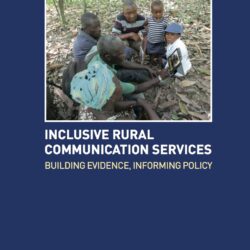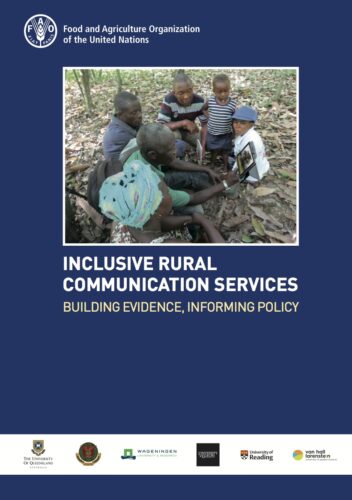
A book documenting evidence-based evaluation approaches for Rural Communication Services (RCS) has been published recently by FAO. Entitled “Inclusive Rural Communication Services: Building Evidence, Informing Policy”, the book analyzes the methodologies used for assessing and documenting RCS as part of agricultural and rural development policies and programs in various parts of the world. Data were drawn from a compilation of 19 cases in Africa, Asia-Pacific, Latin America, and the Carribean.
Results show marked inconsistencies in the evaluative framework, approach, methods, and the corresponding reported outcomes. Compelling evidence of RCS initiatives, however, emerged from cases that used solely horizontal, participatory evaluative approaches. The evidence presents convincing outcomes that can inform policy and argue for the inclusion of RCS in rural development efforts.
The book is an output of the collaborative effort among academia which are members of the Global Research Initiative (GRI) for RCS. The formation of GRI was part of the set of recommended plan of actions agreed upon during the Forum on Communication for Development and Community Media for Family Farming (FCCM) organized by FAO in 2014. The group is composed of faculty from the University of Queensland, University of the Philippines Los Baños, University of Reading, University of Netherlands, and University of Guelph. Elske van de Fliert of UQ headed the team that worked on the book.
You may download a copy of the book here.

